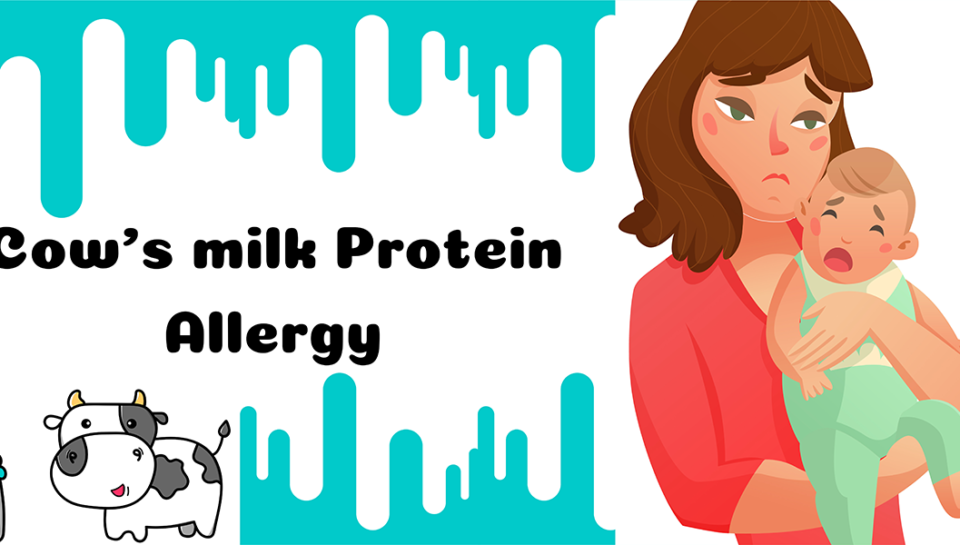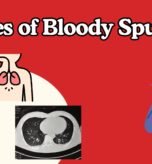Food allergies are not uncommon even in Indian children, however they are not commonly diagnosed since the symptoms of food allergy are mostly non-specific. Most common food allergy is Cow’s milk protein allergy (CMPA). In this allergy the child has difficulty digesting the proteins present in bovine milk (cow’s milk or buffalo milk). As a result, infants become extremely fussy and have abdominal pain, loose stools, vomiting. These infants may also have poor weight gain and nasal congestion.
CMPA usually presents in infants at an age of 4-6 weeks or maybe later. In exclusively breast-fed infants, cow’s milk protein can be transferred to the baby through dairy ingested by the breast-feeding mother. Most infant formulas contain cow’s milk protein that can trigger the symptoms in susceptible babies.
CMPA is an immune mediated disease and can be both IgE mediated or non IgE mediated. In IgE mediated reaction, symptoms start within 2-4 hours of exposure to dairy and eczema, nasal congestion can occur along with gastrointestinal symptoms. In non-IgE mediated reaction, symptoms can occur from few hours to even 7 days after exposure, and they usually have GI symptoms only.
Common symptoms of CMPA are Infant with excessive crying that is inconsolable
- 1. Loose stools
- 2. Colic
- 3. Blood in stools
- 4. Reflux
- 5. Vomiting
- 6. Nasal congestion
- 7. Eczema
- 8. Poor weight gain
- 9. Refusal to feeds in older infants
How do we diagnose CMPA?
Oral food challenge is the gold standard for diagnosis of CMPA.
Resolution of symptoms on complete elimination of milk from the diet of an infant, and reappearance of symptoms on exposure to milk is the oral food challenge test. In breast fed infants, the mother is asked to follow a dairy free diet and the baby is monitored for resolution of symptoms. This test helps in diagnosis of both IgE and non IgE mediated CMPA.
In addition to this test, blood test for cow’s milk specific IgE or a skin prick test can be done for IgE mediated allergy.
How do we treat CMPA?
The infant is started on a milk elimination diet/ dairy free diet till 1 year of age. In breast fed infants, mother follows dairy-free diet till the time that she is breast feeding the infant.
CMPA has 15% cross-reactivity with soy milk, hence parents are asked to avoid soy milk too. Other animal milk like goat milk or camel milk are also not helpful.
Calcium supplementation is required in infants on dairy-free diet.
What is a dairy free diet?
Milk elimination diet or dairy free diet implies restriction of any animal milk or its products (cow, buffalo, goat) from the diet. Dairy products to be avoided are cheese, paneer, curd, yoghurt, butter, ghee and any processed food item containing milk or milk solids.
Parents are encouraged to read the food ingredient labels on packaged food and avoid milk solids, whey protein, casein or butter containing foods.
Does milk allergy get better?
Around 90% of infants are able to digest milk and its products by the end of first year. Rest of the children get better by 3 years of age. In some severe cases, especially the IgE mediated cases, allergy might remain for life.
These children grow normally with no nutritional deficits as long as they are given a balanced diet.




